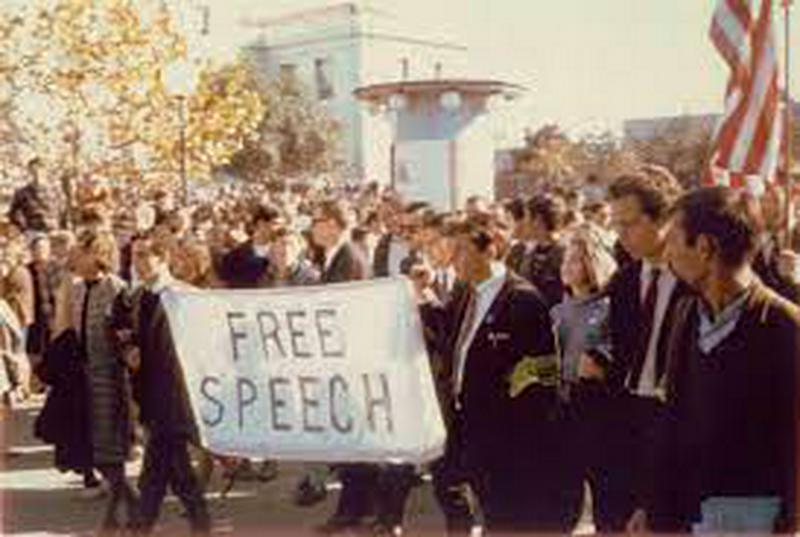The Momentous Berkeley Free Speech Movement Of 1964
By | September 11, 2021

The Berkeley Free Speech Movement of the 1960s arose in response to restrictions enacted by the University of California, Berkeley. Those restrictions included receiving political donations unless the student was a member of either the Democratic or Republican school clubs. When Jack Weinberg was arrested on October 1, 1964, while collecting donations for Civil Rights groups, 300 students surrounded the police car and set off a chain of events that inspired or riled up the entire nation. What followed led to a nationwide debate regarding free speech and amplified the power and importance of peaceful protests.

The Ban
Students encircling the police car holding Weinberg held their ground, staying in place for over 30 hours! At one point 3,000 students gathered around, conducting speeches and engaging in debate. Eventually, the charges were dropped against Weinberg but the line had been drawn in the sand. When more and more students got arrested for participating in protests near and off-campus, the university started to come under fire.
As author Robert Cohen wrote, “The Free Speech Movement was the first revolt of the 1960s to bring to a college campus the mass civil disobedience tactics pioneered in the civil rights movement. Those tactics, most notably the sit-in, would give students unprecedented leverage to make demands on university administrators, setting the stage for mass student protests against the Vietnam War.”

The Protests Grow
The thinking at the time painted Berkeley as a haven for liberals heading towards radicalism. To pacify the state legislatures, the university banned students from conducting protests even near the campus. On December 2nd, Mario Savio led between 1,500 and 4,000 students into Sproul Hall in order to open negotiations with the administration regarding political speech and actions on campus. Savio gave a fiery speech that drew a line in the sand.
“There's a time when the operation of the machine becomes so odious — makes you so sick at heart — that you can't take part. You can't even passively take part. And you've got to put your bodies upon the gears and upon the wheels, upon the levers, upon all the apparatus, and you've got to make it stop. And you've got to indicate to the people who run it, to the people who own it, that unless you're free, the machine will be prevented from working at all.

Mass Arrests
At midnight Alameda County deputy district attorney Edwin Meese III got permission from the Governor to proceed with mass arrests. At two in the morning roughly 800 students were taken into custody. Most were taken 25 miles by bus to Santa Rita in Dublin. They were all released a few hours later. Attempts to bring charges upon these students only lead to more protests and after weeks of deliberation the university slowly backed down. That small victory sowed the seeds for much larger protests in the future.
As one journalist put it, the “FSM (Freedom of Speech Movement) opened up everything--just blew out the tubes of being able to move large amounts of information across the country. It wasn’t exactly that Berkeley was the first place where this mechanism kicked in [political protest] but it was the place where it went critical.”

The Resolution
By the start of 1965 a new, more student-friendly, chancellor Martin Meyerson was in place. He designated the very steps of Sproul Hall where Savio gave his speech as an open area for discussion, during certain hours. The student victory also laid the groundwork for the massive Vietnam protest that would occur on campus just years later. It also marked a pivotal moment in student protest that continues in some form to this day.
